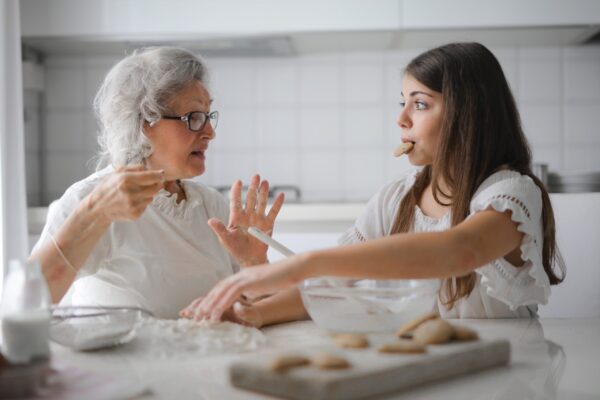The loss of a loved one can be a difficult and overwhelming experience for adults; however, it is as difficult for children experiencing loss in the first instance as it can be a traumatic experience. Here are some ways to help them and what to be prepared for when they grieve.
What is the difference between grief and loss?
Both grief and loss can affect people’s psychological well-being. It is generally related to something likely to return, while grief may be more lasting such as divorce or losing a loved one or family member. Dealing with grief after death is challenging because it requires recognizing and accepting that the deceased cannot come back.
What can children do to help grieve?
The reaction of a child to the loss of a loved one can differ based on their age and previous life experiences. Every child is different, and the following examples of age-related reactions could apply to children of various ages and cognitive abilities.
Children younger than five years usually don’t realize that death is a permanent event and might ask if the person who died will come back. They may also display other signs like clinging to their caregivers or regressive behavior, such as getting wet on the mattress. These kinds of behaviors are frequent and usually end after a certain period has gone by.
The older children between 6 to 11 years are beginning to realize that death lasts forever (though many 6-year-olds still struggle with this idea), and they may be concerned about the possibility that loved ones or friends may be lost to death. They might begin to ask more questions, and they may want to find out what happened. They may express their sadness by expressing anger and may feel physical pains or discomforts.
Teens and teenagers with a minimum age of 12 and 13 years old are conscious that death is inevitable and possible for anyone, even them. They’re often fascinated by the reason what causes things to occur. Their reactions can vary and include apathy, extreme sadness, anger, and a lack of concentration.
Be aware that there is no « correct » way to grieve. There are no particular times at which various behaviors or emotions should be displayed. Children’s reactions will differ greatly depending on their age, intellect capacity, relationship with the person who passed away, how family members react, and the social and cultural context they are part of.
What can I do to inform my child that a loved one has passed away?
It is crucial to cover up the truth but not delay telling the truth. It is normal to protect your child; however, it is important to be truthful. The act of telling your child about what occurred will improve your trust in them and assist them in learning to deal with the loss of the person they love dearly.
Find a secure and quiet space to talk to your children. You can then think through what you intend to say. Request that your children be with you. If they are a young child with an item, toy or comforter they prefer to carry around, allow them to use it. Talk slowly and frequently stop so that they have time to process their thoughts and allow themselves the chance to handle their own emotions.
Be honest and compassionate when dealing with kids of any age. However, ensure that you are aware of children’s needs and refrain from using words like « eulogy » or « loss. A statement like « we ‘lost’ someone » can confuse a child as they may not understand what it signifies. Psychologist Dr. Lisa Damour advises: « It’s more useful for adults to gently and kindly tell a child: ‘I’ve got some very sad news to announce. Your grandmother has passed away. This means that the body of his deceased loved one stopped working, and we will not be able to meet him ever again. It’s difficult for parents to speak these words; however, it’s essential to be transparent and honest. »
It would help if you gave your children enough time to process the information. Young children might react by appearing not to pay attention. Be patient and be patient, waiting to see if they pay attention. Be prepared for your younger children to repeat the same question and again, at this point and in the weeks and days to be.
Be sure to look for « magical » thinking. Some children might be concerned that they have done or said something that led to the death of someone else. All children may feel guilty, so it is important to check to determine if they feel guilty for any reason.
You can inquire: « Are you worried that Daddy has died because of anything you said or did? » In simple phrases, what happened, and assure the person that they aren’t responsible for the death of their loved ones. Example: « You did nothing wrong. The bacterium caused Daddy sick and stopped him from breathing. He could have gotten it anyplace. There was no one to blame and no one was responsible. »
Is it acceptable for me to cry in the presence of my child?
It’s perfectly acceptable – and normal to express your sadness before your child. Be sure to be prepared that you don’t scare your child with your actions; however, show sincerity. If you’re feeling emotional and crying, inform your child how you feel and assure them that there’s no harm in expressing your emotions and sharing your feelings with other people. It will allow children to identify, feel and express their own emotions.
What can I do to assist my child in coping with their sadness?
The mourning process is a great way for adults and children to deal with the loss of a loved one. Children must be involved in any way they feel is appropriate and that they feel at ease. The mourning process allows your child to grieve the loss of their loved ones and celebrate their life and be sad.
Find a way of holding an occasion to remember and highlight how important the person was to everyone. Find ways that your child can bond with the person who died by showing their love and acknowledging the significance of that person’s life. Children might like to draw an image, read a poem, write something about the person, or sing songs.
Each family is likely to have its religions or cultural beliefs. If your family is part of a specific faith, it may be helpful to speak with your spiritual guide, who can assist in explaining the loss and offer comfort for both you and your children.
What can I do to protect my child’s mental health after the loss of a loved person?
Here are some tips to make your child feel more comfortable and keep the mental health of your child:
- Continue to provide your child with love and constant support from parents, relatives, or caregivers with whom they trust and are familiar.
- Children and infants can remain safe and loved by affectionate physical contact with their parents, singing, cuddling, and rocking.
- Regular routines and structures are followed as much as possible. Make sure to maintain a consistent schedule for your day, with some time to engage in activities such as schoolwork, cleaning or exercise, as well as play.
- If your child exhibits challenges or behavior, try to be aware that it’s their way to show what they cannot communicate, and don’t be harsh with them.
- Ensure that the other children who are part of the child’s life are informed by their parents or teachers of what transpired to help the child during returning to school.
Make sure you ensure your physical and mental health. You’re grieving too. It is difficult to be a parent while experiencing your grief. This is why it’s vital to make time for yourself and care for yourself. It is impossible to aid your children if they are sick. Take your time sleeping, take a balanced diet and exercise regularly, and take time to unwind (for instance, by playing music) and have someone you can go for emotional assistance. Avoid all harmful habits, such as drinking more alcohol.

